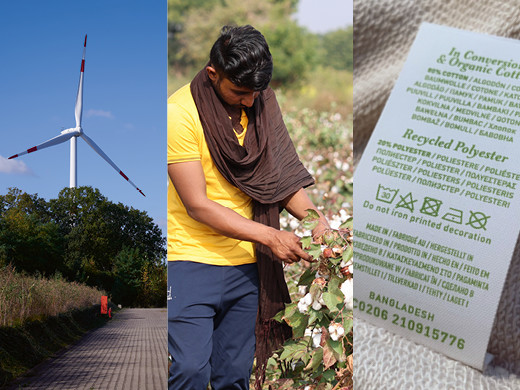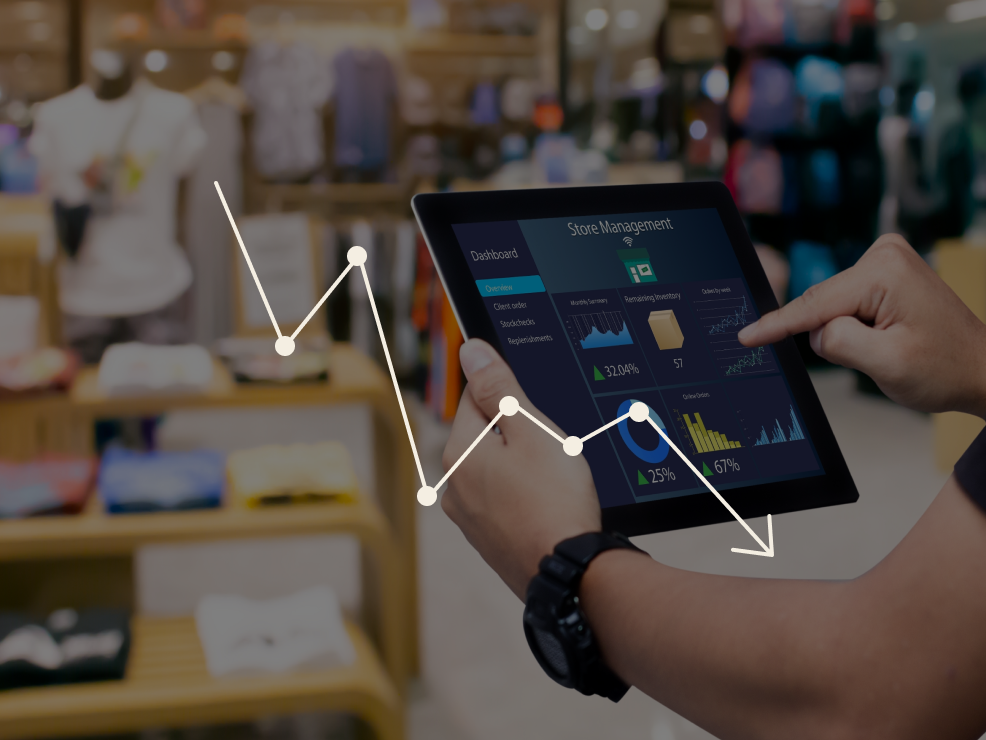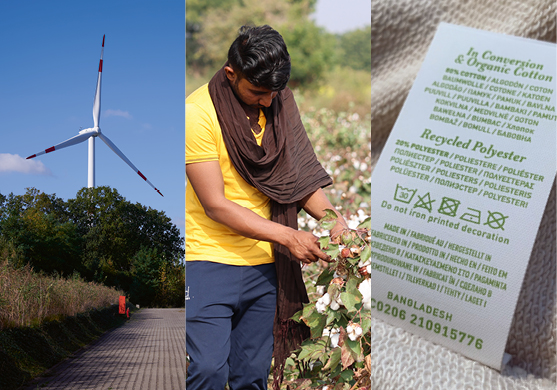Traceability in the Asian textile industry: mission impossible?

With lower production costs, 70% of European textile imports now come from Asia. At the same time, consumer expectations of sustainability are rising. How can (r)etailers solve this equation? Is traceability in Asia even possible?
Traceability is a key element for a (r)etailer
Until recently, it was only when accidents occurred, such as at Rana Plaza in Bangladesh in 2013, that the conditions in which garments are produced became blatantly apparent. It’s now a thing of the past. As customers become more critical and aware, the demand for transparency and traceability in the fashion industry is on the rise.
According to a 2020 McKinsey survey, 66% of shoppers now consider sustainability to be one of the key factors when selecting which fashion brand to buy from. In the coming years, to gain your clients’ trust, you, as a retailer, will have to prove that your products are not harmful to people or the planet. Your reputation, in other words your most valuable asset, will depend on it.

Some improvements, but still a long way to go in Asia
It is precisely because of dramas like the one at Rana Plaza that the textile industry is taking action. Some brands started to map the provenance of their fibres, thanks to blockchain technology or biomarkers for example. But given the complexity of the supply chain and the massive use of subcontracting in Asia, the process is still a challenge.
Barely one in five garment companies currently have a clear view of their entire supply chain*. Yet only if you know where and under what conditions your clothes are produced can you improve the social and environmental impact of your products. The Organisation for Economic Co-operation and Development (OECD) recommends meaningful participation by all stakeholders to ensure sustainable clothing.
* KPMG China

Avoid sourcing from Asia?
This is a legitimate question. Products in Europe must follow strict regulations. In Asia, on the other hand, no such framework exists. Traceability still seems almost impossible unless you have your own local teams and limit yourself to a small number of trusted partners.
Is this your case? Then go for it, you will benefit from attractive prices while offering products in line with your values to your customers. If not, stay away or partner with a supplier like B&C to have access to the best of both worlds: quality goods sourced in Asia but billed in euros, available within 48 hours.
The key to traceability lies in B&C Collection’s long-term supplier partnerships

The power of partnerships
Delivering responsibly produced styles of consistent quality has been at the heart of B&C’s strategy since its establishment in 1997. Achieving and maintaining this over the last 25 years has only been possible thanks to the development of long-term partnerships with a limited number of trusted local factories in Asia. Trust and respect are the foundations of these relationships, leading to constant innovation and improvements in all areas of the production process.
How this delivers traceability
It all starts with selecting the right factories. At B&C a manufacturer can only become a long-term business partner after the successful completion of a strict vetting process measuring quality, production capacity and social compliance. All this before a first order is placed. First test orders including product quality and factory controls are next, and these need to be faultless before a true partnership begins.
That’s just the start. Investing time and effort on the ground to help each partner factory develop and become even better across all areas of the production process is what brings long-term value, but it’s not possible when there are too many factories, too many manufacturers. By limiting the number of active partner factories B&C can give each one the best support. Through our local office of 22 experienced quality controlers who regularly visit every business partner, we ensure not only consistent quality but also strict adherence to social compliance standards.
Because strong relationships are built on mutual trust and respect we’re also committed to planning our repeat production runs so each supplier can manage their production schedules, their workforce planning, and also their cash flow. Large regular orders and timely payments mean not only guaranteed product availability but also better working conditions for all employees. Not only that, it also ensures their is no sub-contracting, so B&Cs products are more traceable.
Commitment to People

Traceability to guarantee product quality and availability is important of course. But these days it’s just as important to know about the people who make the products – Who are they? How do they work? How are they paid?
As a Fair Wear Foundation Leader, B&C has confirmed its commitment to the continuous improvement of working conditions in all it’s partner factories. The local team make daily factory visits to check on facilities and the wellbeing of employees. This includes making sure overtime work is kept to a minimum and there is no sub-contracting.
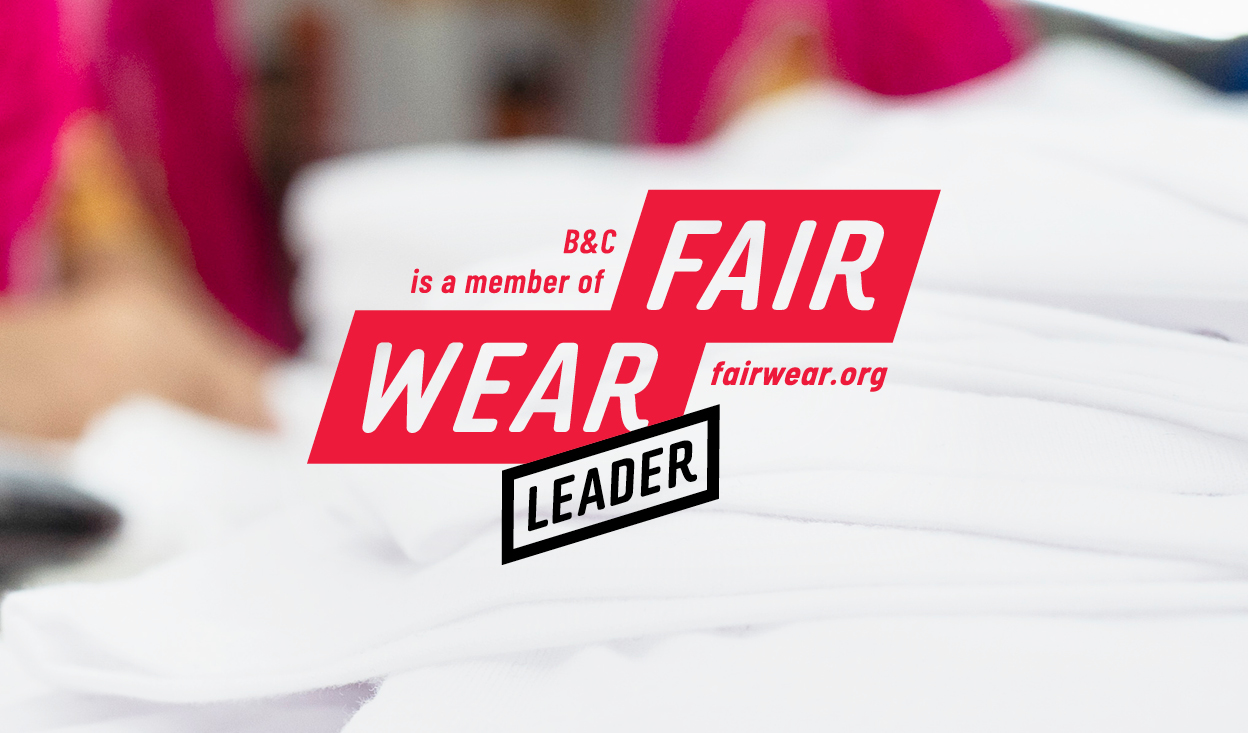
Thanks to strict compliance guidelines, but also to managed order and payment processes, B&C help make sure the people who make their garments work in the best possible environments. This has been confirmed by a score of 82% in the Fair Wear Foundation Brand Performance Check, making B&C a Fair Wear Foundation Leader.
B&C can answer your need for traceability
In short, we can trace our production because we have trusted long-term partnerships with a limited number of trusted partner factories. We know where each of our styles comes from, how it is produced and by whom.
If you’re looking for a trustworthy supply chain to help you build your collection, then contact us.
To be sustainable you need to see the full picture
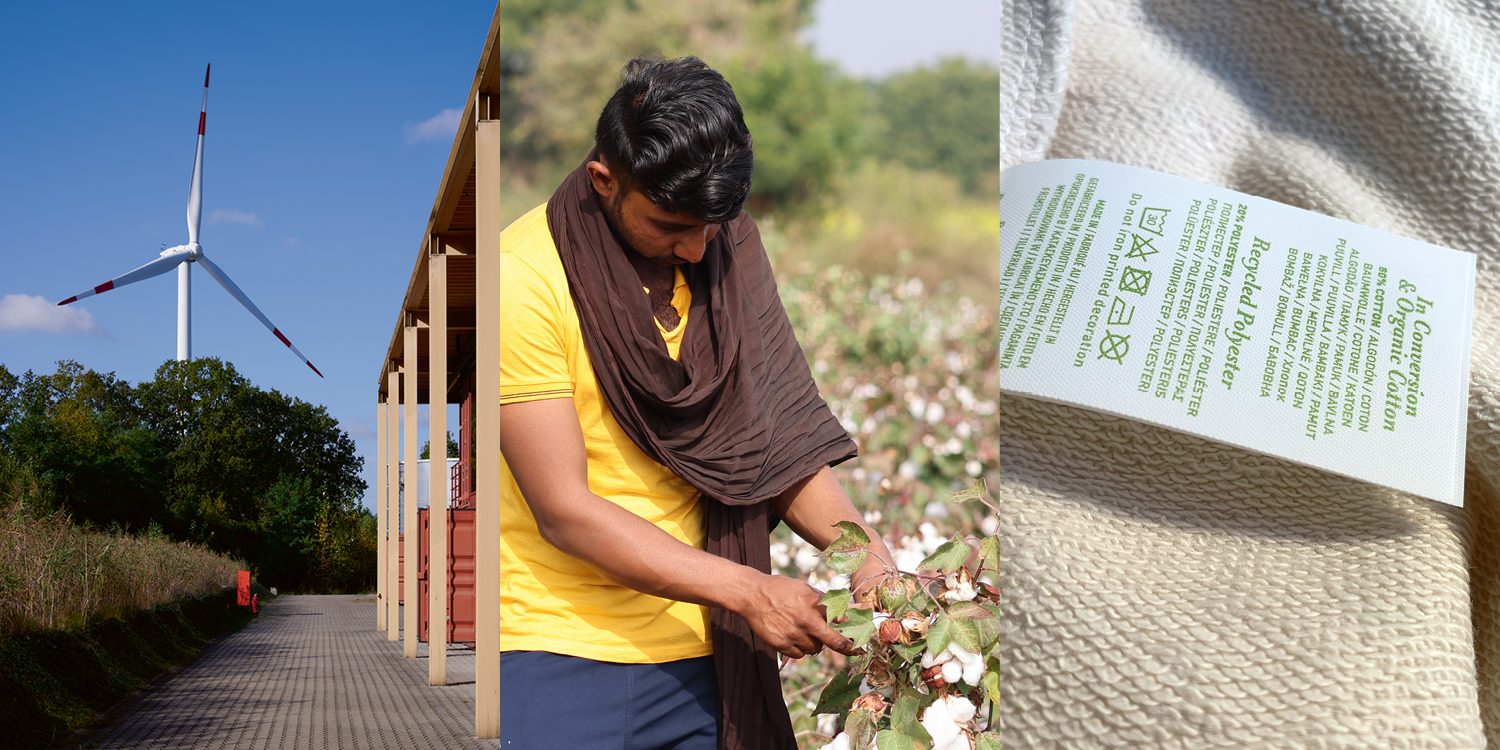
Sustainability is a long-term commitment
There is no shortcut to being a sustainable brand, it needs constant questioning of existing practices and the vision to try new approaches. At B&C we’ve been committed to economic, social and environmental sustainability since our creation in1997, adapting our products, production and business processes to improve working conditions and limit our impact on the environment.
A Holistic View
We know that sustainability goes far beyond organic cotton and that’s why we’re driving positive change along our full value chain, from farms to factories, from warehousing to office processes. Our holistic approach means you can have a sustainable collection, whatever B&C products you choose. And all that without compromising on quality.

Sustainable by Design
Consideration of environmental and social impacts starts with product design and choice of fabric, and that’s why we focus on the use of natural fibres, keeping the percentage of polyester low in our garments. Cotton in all its forms is at the heart of our collection, and by consistently developing our use of both Organic in Conversion and Better Cotton too we’re investing in our environmental future and improving the earnings of farmers. Working towards long term goals we’re helping to deliver immediate environmental and social benefits to local communities.
Sustainable Partnerships
80% of B&Cs production comes from just 11 partner factories. Through long-term relationships we encourage and support each factory in being more environmentally and socially compliant. From the mandatory installation of effective effluent treatment plants (ETP) to strict adherence to our social compliance guidelines, monitoring and guiding all our partners contributes a great deal to the quality and sustainability of our products.
Sustainable Community

Our European warehouse is designed to give back to the community! Producing its own green energy thanks to wind turbines and solar panels on site, the excess power produced supplies 2250 neighbouring households. But that’s not all. We also move our products along Europe’s waterways rather than by road, significantly reducing emissions. Making sure we’re limiting our environmental impact close to home is important too.
Sustainable at work

At B&C sustainability is a mindset which goes beyond products and production. It’s something we’re all focused on, in everything we do. That’s why we’ve worked hard to reduce the carbon footprint of our offices. By making the right choices in energy, travel and office design and by implementing the right procedures in recycling and paperless communications we have significantly reduced the carbon emissions of both our our European HQ and our Asian office. We are also committed to offsetting remaining emissions by investing in recognised carbon offset projects. Thanks to these efforts and investments we can now say that our European HQ and Asian office are Carbon Neutral!
Inspired Tomorrow _°

If you’re looking for styles produced with added sustainable credentials then the B&C Inspired Tomorrow_° label is for you. Combining contemporary designs with great wearability, made of more sustainable fabrics and produced in a conscious manner, the B&C Inspired Tomorrow_°styles are the perfect basis for your sustainable collection.
B&C can deliver your sustainable collection
Our commitment to sustainability in every area of our business is your guarantee that the products you’ll offer your customers are made by a company striving to limit the negative impacts on our planet whilst improving peoples lives and working conditions. That’s a great selling point!


